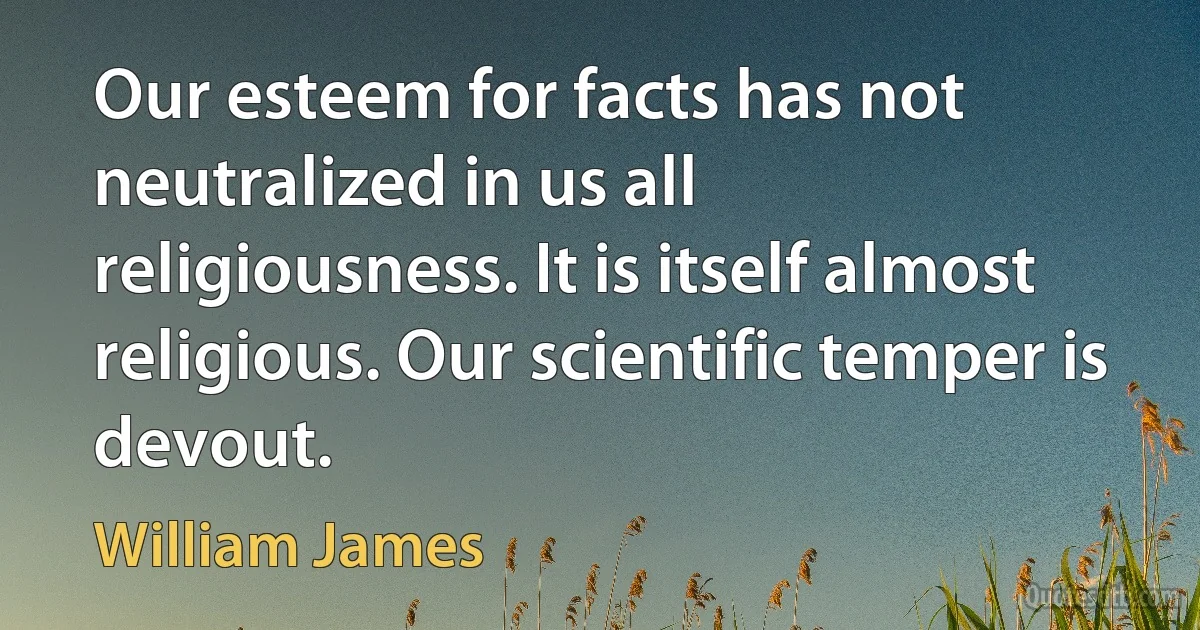Esteem Quotes - page 3
The proof of the pudding is in the eating. There was a widespread myth of the 1970s, a myth along Tom Kuhn's (1962) Structure of Scientific Revolutions lines. The Keynesianism, which worked so well in Camelot and brought forth a long epoch of price-level stability with good Q growth and nearly full employment, gave way to a new and quite different macro view after 1966. A new paradigm, monistic monetarism, so the tale narrates, gave a better fit. And therefore King Keynes lost self esteem and public esteem. The King is dead. Long live King Milton!
Contemplate the true facts. Examine 10 prominent best forecasting models 1950 to 1980: Wharton, Townsend–Greenspan, Michigan Model, St. Louis Reserve Bank, Citibank Economic Department under Walter Wriston's choice of Lief Olson, et cetera. ... M did matter as for almost everyone. But never did M alone matter systemically, as post-1950 Friedman monetarism professed.

Paul Samuelson
I regret that I am now to die in the belief, that the useless sacrifice of themselves by the generation of 1776, to acquire self- government and happiness to their country, is to be thrown away by the unwise and unworthy passions of their sons, and that my only consolation is to be, that I live not to weep over it. If they would but dispassionately weigh the blessings they will throw away, against an abstract principle more likely to be effected by union than by scission, they would pause before they would perpetrate this act of suicide on themselves, and of treason against the hopes of the world. To yourself, as the faithful advocate of the Union, I tender the offering of my high esteem and respect.

Thomas Jefferson
Like any internationalist, I embrace Scotland's interdependence and the advantages that such interdependence confers. But in international relations - perhaps even more than the economic sphere - there are major advantages to pursuing an independent policy that promotes Scotland's global interests. Indeed it precisely because we live in an interdependent world - one where markets are integrating and information flow is unstoppable - a world where the reality of climate change acts as a daily reminder of our reliance on each other - that independence matters. Interdependence is a welcome fact of modern global politics. What matters in the Scottish national interest - above all else - are the terms on which Scotland engages. The equality of esteem, of authority between nations matters more now than it has ever done.

Alex Salmond
It is really to be lamented that after a public servant has passed a life in important and faithful services, after having given the most plenary satisfaction in every station, it should yet be in the power of every individual to disturb his quiet, by arraigning him in a gazette and by obliging him to act as if he needed a defence, an obligation imposed on him by unthinking minds which never give themselves the trouble of seeking a reflection unless it be presented to them. However it is a part of the price we pay for our liberty, which cannot be guarded but by the freedom of the press, nor that be limited without danger of losing it. To the loss of time, of labour, of money, then, must be added that of quiet, to which those must offer themselves who are capable of serving the public, and all this is better than European bondage. Your quiet may have suffered for a moment on this occasion, but you have the strongest of all supports that of the public esteem.

Thomas Jefferson
Voltaire, who was both the flatterer and the satirist of despotism, took another line. His force lay in exposing and ridiculing the superstitions which priest-craft, united with state-craft, had interwoven with governments. It was not from the purity of his principles, or his love of mankind (for satire and philanthropy are not naturally concordant), but from his strong capacity of seeing folly in its true shape, and his irresistible propensity to expose it, that he made those attacks. They were, however, as formidable as if the motive had been virtuous; and he merits the thanks rather than the esteem of mankind.

Thomas Paine
If, being duke and peer, you would not be contented with my standing uncovered before you, but should also wish that I should esteem you, I should ask you to show me the qualities that merit my esteem. If you did this, you would gain it, and I could not refuse it to you with justice; but if you did not do it, you would be unjust to demand it of me; and assuredly you would not succeed, were you the greatest prince in the world.

Blaise Pascal
I esteem the modern error, That all goes by self-interest and the checking and balancing of greedy knaveries, and that in short, there is nothing divine whatever in the association of men, a still more despicable error, natural as it is to an unbelieving century, than that of a "divine right" in people called Kings. I say, Find me the true Konning, King, or Able-man, and he has a divine right over me.

Thomas Carlyle
I've always been surprised at the degree of success of The Mirror and the Lamp and the range and duration of esteem for it. ... I had no reason to expect in 1953 that it would appeal to more than a specialized group interested in literary criticism. I think one of the reasons why it's been of interest to a broad spectrum of readers is because one of its emphases was on the role of metaphors in steering human thinking. It was a very early book to insist on the role of metaphors in cognition, as well as in imaginative literature - to claim that key metaphors help determine what and how we perceive and how we think about our perceptions. ... Natural Supernaturalism is quite well known and even used as a textbook, but it never seems to have attracted the acclaim of its predecessor.

M. H. Abrams
Whatever be the substance which takes possession of such a soul, it will produce the same result, and will change into a pretext for not conforming to any concrete purpose. If it appears as reactionary or anti-liberal it will be in order to affirm that the salvation of the State gives a right to level down all other standards, and to manhandle one's neighbour, above all if one's neighbour is an outstanding personality. But the same happens if it decides to act the revolutionary; the apparent enthusiasm for the manual worker, for the afflicted and for social justice, serves as a mask to facilitate the refusal of all obligations, such as courtesy, truthfulness and, above all, respect or esteem for superior individuals. ... As regards other kinds of Dictatorship, we have seen only too well how they flatter the mass-man, by trampling on everything that appeared to be above the common level.

José Ortega y Gasset
In discussing his work [the art of Marcel Duchamp, ] it is necessary to avoid overrating his silence. I hold him in a very high esteem, but I have to reject his silence. Duchamp was simply finished. He had run out of ideas; he was unable to come up with anything important... I would say that even the bourgeois tendencies in Duchamp's work – i. e., a form of provocative, bohemian behavior intended to 'épater le bourgeois'- follow the same path. Duchamp started out from here and wanted to shock the bourgeoisie, and because of that he destroyed his creative powers... The content of Duchamp's silence refers to the aim of leaving the subconscious passive, of developing it. This is the aspect of Duchamp, which is related to Surrealism. The surrealists asserted that they could live with their subconscious; they thought they were above reality, but instead they were beneath it. They thought they could fish in muddy waters.... but to my mind, the images which emerged have a repressive effect.

Joseph Beuys



